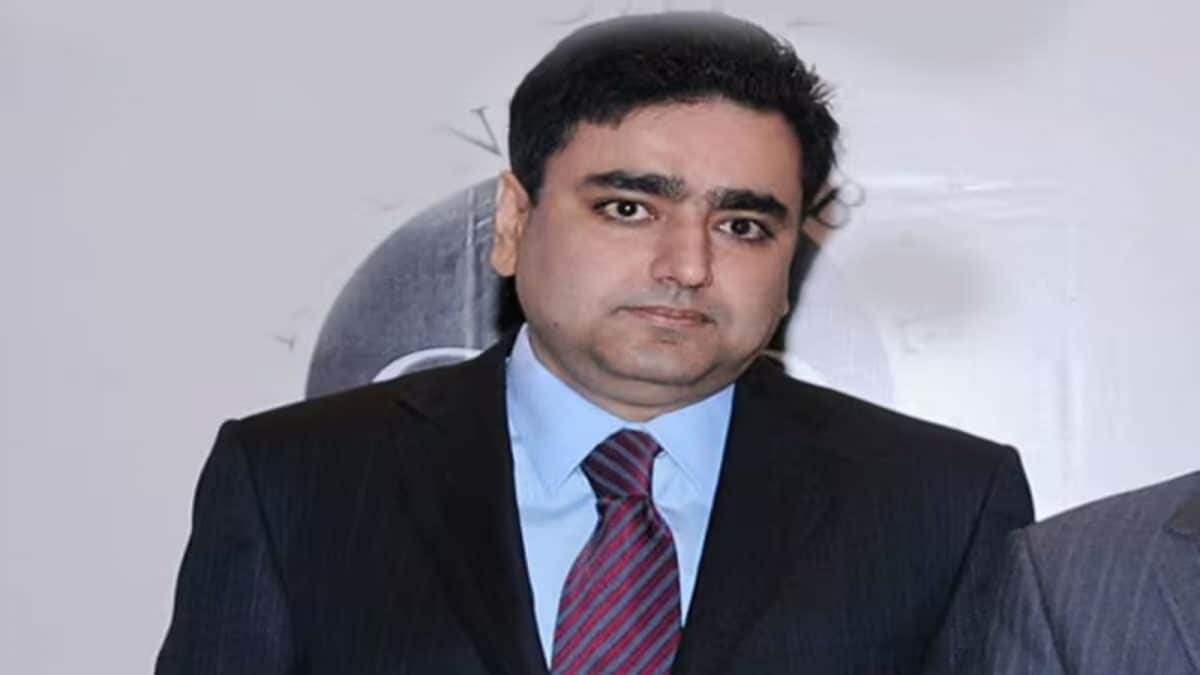ARTICLE AD BOX
Last Updated:July 14, 2025, 10:23 IST
Speaking to CNN-News18, Kiran Bedi shares her insights, highlighting the underlying responsibilities and potential pitfalls for officers in this digital age.

Kiran Bedi, first woman IPS officer. (Image: PTI File)
In an era dominated by social media, the trend of All India Services (AIS) officers actively promoting themselves on platforms like Instagram, X (formerly Twitter), and YouTube is becoming increasingly prevalent. Last month, a high-level meeting raised urgent concerns about AIS officers misusing social media for self-promotion, needing immediate redressal. Speaking exclusively to CNN-News18, Kiran Bedi, first woman IPS officer, shares her insights, highlighting the underlying responsibilities and potential pitfalls for officers in this digital age.
Bedi emphasises the need for AIS officers to prioritise responsibility, restraint, and the larger societal good over personal gain. She discusses the importance of maintaining the values of neutrality, humility, and institutional loyalty, especially in the context of social media. She also addresses the current inadequacies of service rules in managing the complexities of digital engagement and offers recommendations for ensuring that officers’ online presence aligns with their constitutional mandate.
Here are edited excerpts of the interview:
Q: What is your view on the increasing trend of AIS officers actively promoting themselves on platforms like Instagram, X (formerly Twitter), and YouTube?
Kiran Bedi: In today’s world, self-promotion is almost inevitable. We live in a time of heightened visibility, intense competition, and a pervasive fear of missing out (FOMO). However, once we enter public service—particularly the All India Services—our role shifts from self to society. Public service demands responsibility, restraint, and a deeper understanding of our purpose. The focus must be on causes, not individuals. This is a realization that must come from within. Officers who cross red lines may not see the immediate consequences, but over time, it can erode credibility and hurt them professionally. Ultimately, it’s a personal choice, but one that carries long-term implications.
Q: Do you believe such behaviour is consistent with the ethos of public service and the values of neutrality, humility, and institutional focus?
Kiran Bedi: Social media may be deleted, but it is never erased. That’s a crucial point to internalize. The values of neutrality, humility, and institutional loyalty are central to public service. Training and reflection at various stages of one’s career can reinforce these values. Officers must constantly introspect: Are they upholding the dignity of their office, or are they diluting it for personal image-building?
Q: How does excessive social media use potentially affect the discipline, efficiency, and impartiality expected from AIS officers?
Kiran Bedi: There must be a clear distinction between purpose and promotion, cause and ego. Restraint, caution, and integrity are non-negotiable. Officers must be mindful of the intent behind their posts. If the intention is noble, the message can stand on its own merit. But if it is driven by self-interest, it quickly becomes unethical and irresponsible. The system relies on impartiality and discipline, both of which can be compromised by reckless digital behaviour.
Q: Have current service rules and association guidelines (e.g., AIS Conduct Rules) proven adequate in addressing this issue?
Kiran Bedi: The existing rules are outdated and not fully aligned with the complexities of today’s digitally connected public sphere. They require a reset. Public service now involves not just governance but communication and collaboration with citizens. There’s a thin line between the “right to know" and responsible public engagement. The rules must evolve to recognize this shift—while reinforcing maturity, discretion, and institutional decorum.
Q: What steps would you recommend to ensure that digital engagement by officers is both responsible and aligned with the constitutional mandate of the service?
Kiran Bedi: All digital engagement must be linked to a cause and the larger goal of public welfare. The priority is to earn and maintain the public’s trust. Messaging should instil hope, create understanding, and demonstrate accountability. Officers must use digital platforms to educate, empower, and address grievances—not to seek applause. The communication must serve the people, not the ego.
Q: Do you believe social media is being misused to build a public image for political, commercial, or career benefits, and if so, how should this be curbed?
Kiran Bedi: Yes, especially when posts are sponsored or designed to build a brand around an officer. Paid promotion is transactional—and the public sees through it. It often backfires and ends up being a waste of credibility and public money. Restraint in spending and credibility in communication are key. Officers should ask: Is this message informative? Or is it marketing without substance? If it’s the latter, it violates the spirit of public service.
Q: How can young officers be encouraged to use digital platforms constructively—for public awareness, transparency, and grievance redressal—without falling into self-glorification?
Kiran Bedi: By grounding themselves in their core values: responsibility, humility, and empathy. If young officers stay true to their conscience and remain committed to public service, their communication will naturally reflect purpose over pride. Their role is transformational, not transactional—even in a system where job security and visibility can tempt them towards self-promotion. A sense of purpose, not popularity, must guide their digital presence.

With over 15 years of journalistic experience, Ankur Sharma, Associate Editor, specializes in internal security and is tasked with providing comprehensive coverage from the Ministry of Home Affairs, paramilitar...Read More
With over 15 years of journalistic experience, Ankur Sharma, Associate Editor, specializes in internal security and is tasked with providing comprehensive coverage from the Ministry of Home Affairs, paramilitar...
Read More
- Location :
- First Published:
News india 'Purpose Over Popularity': Kiran Bedi Cautions Bureaucrats On Social Media Glorification | Interview
Disclaimer: Comments reflect users’ views, not News18’s. Please keep discussions respectful and constructive. Abusive, defamatory, or illegal comments will be removed. News18 may disable any comment at its discretion. By posting, you agree to our Terms of Use and Privacy Policy.



.png)
.png)
.png)
















 2 days ago
11
2 days ago
11









 English (US) ·
English (US) ·